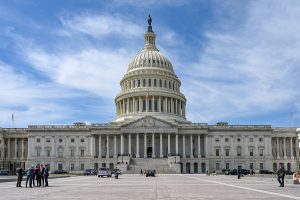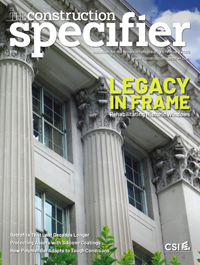Senate bill to recognize buildings as infrastructure

The US Senate passed a $1.2 trillion bipartisan bill including several key provisions to help modernize U.S. infrastructure.
“To meet the challenges of the 21st century, our nation’s infrastructure funding needs to move beyond roads and bridges to include schools, hospitals, homes and more, especially as buildings contribute nearly 40 percent of worldwide carbon emissions,” said American Institute of Architects (AIA) President Peter Exley.
The Senate is expected to advance a second infrastructure bill through the Budget Reconciliation process this fall.
AIA has advocated for several of the provisions included in the Senate’s Infrastructure Investment and Jobs Act H.R. 3684, which will improve safety, resilience, and sustainability in the built environment.
Key provisions to improve the built environment include:
- providing $3.5 billion in funding for the Department of Energy’s (DOE) Weatherization Assistance Program, which increases energy efficiency and reduces costs for low-income households;
- Authorizing $500 million in competitive grants to support energy efficiency and renewable energy in schools.
- Allocating $1 billion for the Federal Emergency Management Agency’s (FEMA) Building Resilient Infrastructure and Communities (BRIC) program.
- Allocating $500 million for grants established from the Safeguarding Tomorrow through Ongoing Risk Mitigation Act (STORM Act), which mitigates hazards to reduce risks from disasters.
- Providing $250 million in funding to establish the Energy Efficiency Revolving Loan Fund Capitalization Grant Program, which states could use to improve the energy efficiency of residential and commercial buildings.
- Establishing a $225 million competitive grant program within the DOE’s Building Technologies Office to support cost-effective building code implementation.
- Establishing a $40 million grant program to train individuals to conduct energy audits and surveys of commercial and residential buildings.
- Developing building, training, and assessment centers through institutions of higher education and Tribal colleges to train architects, engineers, and other professionals about energy-efficient design and technologies, along with fostering additional research.
- Allowing the Metropolitan Transportation Planning authorities to use federal funding to promote more walkable and multi-modal communities.
The Senate’s bill will now require a vote in the full House of Representatives, which is currently on recess through September 20. The legislation will also require President Biden’s signature to be enacted.
Since February, the AIA and its members have been advocating for members of Congress to include federal funding for buildings in the infrastructure package. So far, AIA members have sent thousands of letters to their respective members of Congress.


